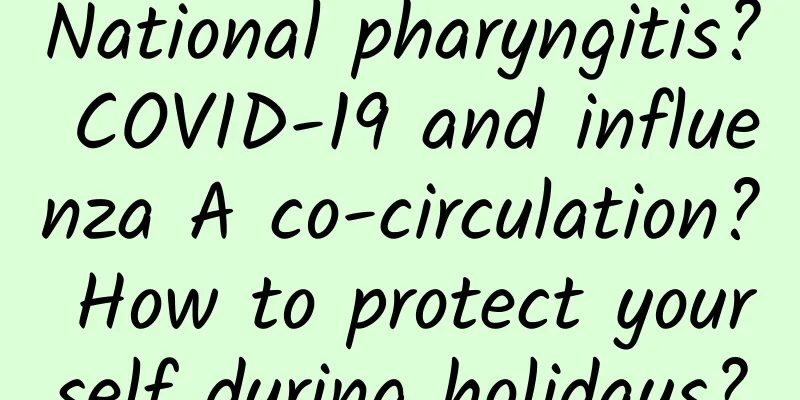Protect your soul with a green code | Sleep problems and solutions during home confinement

|
Editor's note: Many people who stay at home have disordered work and rest schedules. They don't want to get up in the morning, still feel tired after getting up, don't want to sleep at night, or have difficulty falling asleep, interrupted sleep, and wake up early. Some students also turn on "hibernation mode" and sleep for more than 10 hours a day. Sleeping too much will not increase physical and mental strength, but will weaken physical strength. Sleeping too much or too little can cause sleep problems. The epidemic has changed our daily routines. There is no need to worry too much about occasional sleep problems. The most important thing is to learn how to deal with them, re-establish a healthy sleep pattern, and not let temporary sleep problems develop into long-term sleep disorders. 1 Sleep time varies from person to person, and people of different ages have different sleep times. Newborns: 14-18 hours; around 10 years old: 9-10 hours; adults: 7-8 hours, 20% of adults are less than 6 hours; over 65 years old about 6 hours; 70-85 years old less than 6 hours or less. 2 Sleep quality is important The normal structure of human sleep is divided into rapid eye movement sleep and non-rapid eye movement sleep phases. There are 4-6 alternations in a day and night. Each phase has a corresponding physiological function. The third phase of non-rapid eye movement is a deep sleep period, which is mainly for physical recovery. The rapid eye movement sleep period is beneficial to the development and maturation of the nervous system of young children, promotes learning and memory, and promotes the recovery of energy. Therefore, maintain the total sleep time, pay attention to the sleep structure, and ensure the quality of sleep. 3 Solution 1. Cultivate good sleeping habits 1. Establish a regular sleep schedule and go to bed and get up early as much as possible. Arrange your study and life so that you go to bed and get up at roughly the same time. 2. Avoid napping: napping will disrupt your biological clock. 3. The bed is a tool for sleeping: Many people with insomnia often read, make phone calls, watch TV, or just worry in bed. Try not to look at your phone one hour before going to bed. 4. Avoid bedtime anxiety: Avoid arguing and doing challenging tasks before going to bed. 5. Set up “worry time” and “to-do list” in advance. 6. Release your feelings. 7. Reduce or avoid the intake of alcohol, coffee and other foods during dinner. 8. If you can’t sleep, get up. Don’t force yourself to sleep. Challenge negative thoughts. 9. Sleep restriction treatment can be adopted. Do not sleep for 24 consecutive hours, start with the minimum sleep time, and gradually increase the sleep time (increase 15 minutes every night). Do not always require 8 hours of sleep. 10. Others: Under the condition of good health, moderate exercise can relax the body, improve mood and keep a happy mood. Students can make specific life and study plans. Paying attention to psychological adjustment and strengthening self-relaxation training can reduce anxiety about sleep. (ii) Cognitive therapy: Correcting irrational ideas about insomnia and sleep, such as: ①Unrealistic expectations of sleep. ② Wrong views on the causes of insomnia: believing that serious physical illness, tension, and worry often have more impact on sleep than biological factors. ③ Over-exaggerating the consequences of insomnia. ④Try to control your sleep every night. In fact, sleep is a physiological activity regulated by the autonomic nervous system and is not directly controlled by the will. When the body needs sleep, it will naturally fall asleep. 3. Behavioral techniques ① Stimulus control technology: regulate sleep by reducing activities that affect sleep. ② Relaxation training: It is more suitable for people with high arousal levels who have difficulty falling asleep or who have difficulty falling asleep again after waking up at night. Through relaxation training, the autonomic nervous system can develop in a direction that is conducive to sleep, the physiological alertness can be reduced, and sleep can be induced. ③Restricted sleep treatment: Spending too long in bed will aggravate insomnia and reduce sleep quality. Therefore, by limiting the time in bed, a mild state of sleep deprivation can be artificially created to achieve the goal of improving sleep efficiency. ④ Counter-intention therapy: For insomniacs, fear and anxiety about sleep are often present at the beginning of sleep or during the process of falling asleep. The high level of emotional arousal seriously affects the natural inhibition of the central nervous system. This method allows them to change from always wanting to fall asleep as quickly as possible to intentionally staying awake for a long time and refusing to fall asleep. If insomniacs give up the effort to fall asleep and stay awake, anxiety will be relieved and falling asleep will be easier. |
<<: Protect your soul with a green code | Self-protection before, during and after Yang
Recommend
What are the harms of habitual miscarriage to the body?
Abortion happens to many female friends. It usual...
I'm suddenly afraid of the cold. Is this because I'm pregnant?
If you feel suddenly cold, this is not necessaril...
Is thin and soft hair a sign of kidney deficiency? How can boys improve their thin and soft hair?
Due to the rapid increase in the pace of life, ma...
Genital herpes recovery
Genital herpes is a common sexually transmitted d...
Is your body exhausted? A table to calculate your fatigue index
Do you have the following symptoms? Your head fee...
Can I have sex when I'm 8 months pregnant?
Can you have sex when you are eight months pregna...
Can high prolactin cause infertility?
Normal female hormones play a very important role...
Why do I feel uncomfortable in my lower abdomen after a vaginal ultrasound?
Vaginal ultrasound is a relatively common medical...
Is shepherd's purse considered an allergy-inducing food? Why are shepherd's purse wontons sour?
Shepherd's purse is also called ground vegeta...
What are some common low-protein diets?
Understanding and following a low-protein diet is...
What is the cause of slight bleeding during sexual intercourse?
Many young people may encounter this kind of thin...
What are the chances of getting pregnant during menstruation?
Many women will consciously not have sexual inter...
The first-person perspective brings you an immersive experience of normal childbirth
Natural childbirth, also known as natural childbi...
Women who come into contact with this thing every day are destined to die early
A 14-year study conducted by Japanese scientists ...









